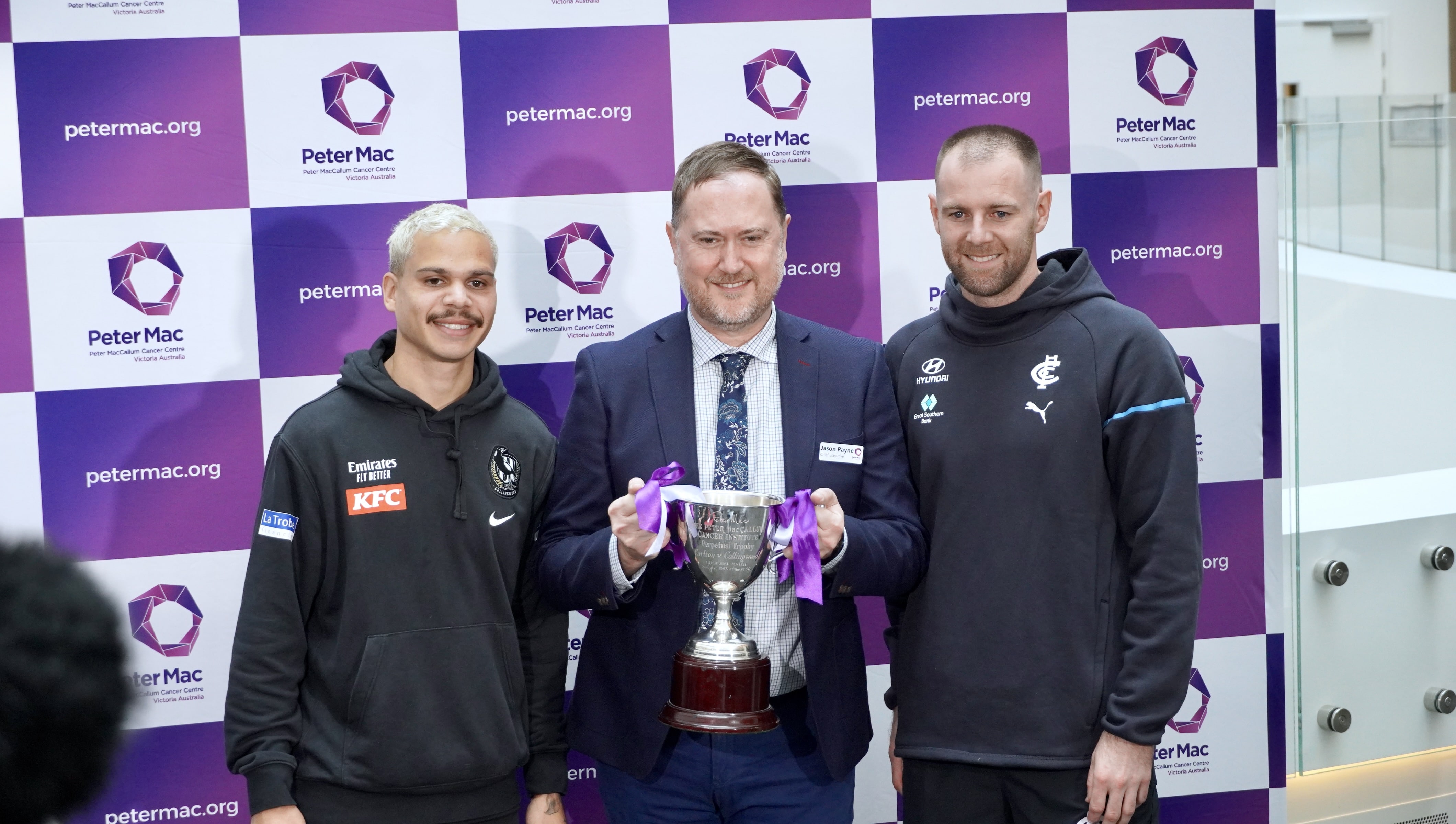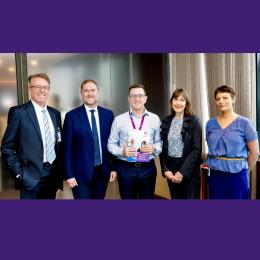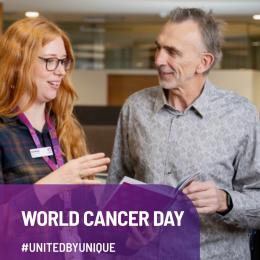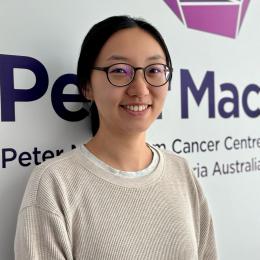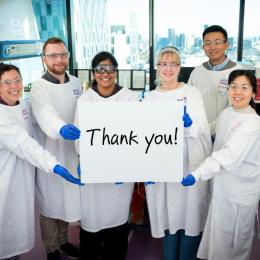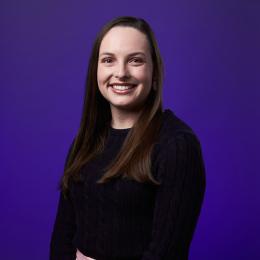Michael’s shock stage 3 bowel cancer diagnosis
4 min read 30 October 2024
Michael was a fit and healthy 28-year-old when he was diagnosed with bowel cancer. He survived months of 24/7 chemotherapy, radiation therapy and extensive surgery, and he is cancer free. But Michael’s cancer took his prostate, his rectum and a large part of his bowel – leaving him with numbness, ongoing pain and a colostomy bag for the rest of this life.
You can help accelerate cancer research to discover kinder treatments and cancer cures so people like Michael can have better outcomes.
You can help accelerate research like Dr Wilson's with a donation to Peter Mac.
When Michael first noticed some blood while on the toilet, he immediately went to get checked at the GP. His symptoms were put down to haemorrhoids, which, while uncomfortable, were easily dealt with.
But everything changed when Michael went in for haemorrhoid surgery.
Michael’s problem wasn’t haemorrhoids. It was cancer.
“The surgeon sat me down after the procedure and said: ‘I’ve got some bad news. I believe you’ve got quite an aggressive cancerous tumour in your bowel’.
“As soon as I heard the word cancer, my first thought was, ‘I’m dead. I’m finished’.”
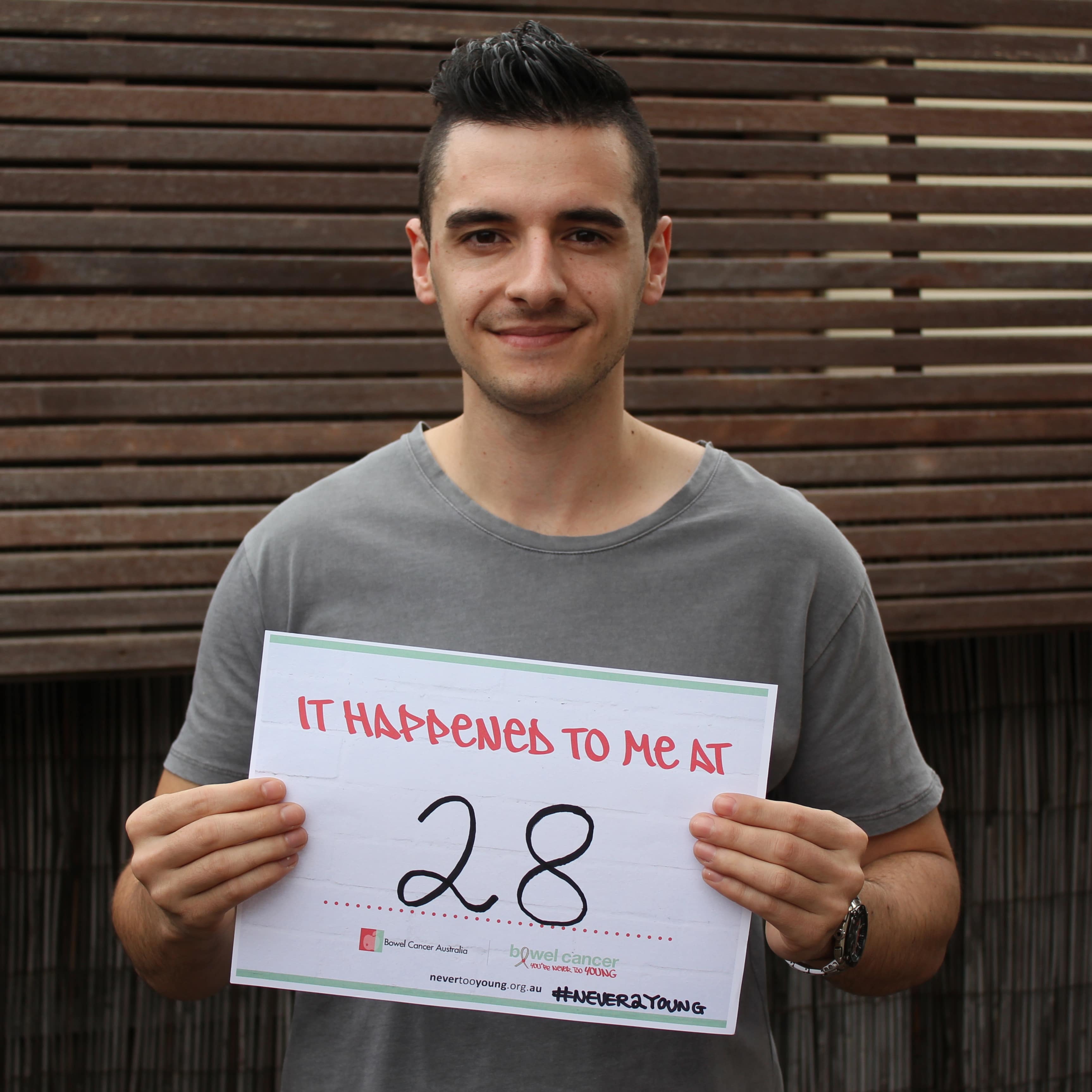
Michael had every reason to be worried. Three out of every 10 bowel cancer patients do not survive beyond five years. And his cancer had already started to spread.
At any stage of life, but especially when you’re just 28 with your whole life ahead of you, a five-year survival rate isn’t nearly long enough.
How Peter Mac supporters helped save Michael’s life
Moving fast, Michael started treatment within two weeks.
He endured 24/7 chemotherapy and daily radiation therapy for six weeks – all to try and shrink his tumour before surgery:
“The chemo and the radiation were needed because of the positioning of my cancer. As it was, it was too poor of an area to operate on. So, the goal of the treatment was to shrink it, giving the surgeons a better chance of removing the cancer without losing much more.”
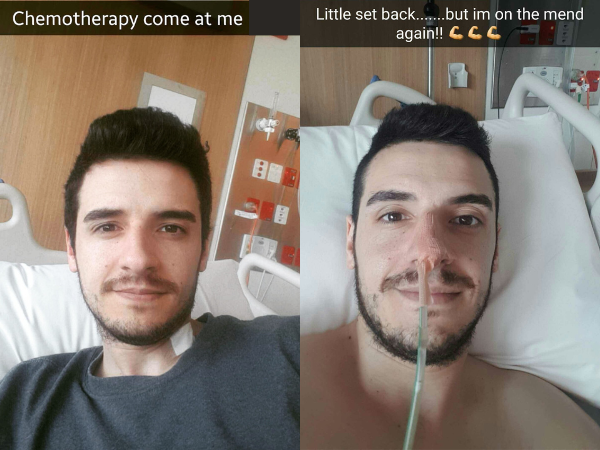 Michael during treatment at Peter Mac
Michael during treatment at Peter Mac
But even with the aggressive treatment regime, Michael’s cancer was still deemed too difficult to operate on.
“It was going to be too hard for them, too invasive. They told me it would require specialist techniques and equipment,” Michael shares.
Michael was quickly referred to Peter Mac.
“I was told that would give me the best chance of survival, as well as a less-invasive surgery with all the new technology Peter Mac had. It would save me from having my whole torso opened up.”
Michael’s surgery was made possible at Peter Mac thanks to donors who helped fund the purchase of two robotic surgical systems in 2010 and 2017. This investment made Peter Mac the home of the most advanced robotic surgical system in Australia.
But even with this innovative technology, the surgery wasn’t going to be easy – or without risk.
Michael’s surgery lasted 12 hours.
He had large amounts of his bowel removed, along with his rectum, which means Michael will have to use a colostomy bag for the rest of his life.
However, Michael was fortunate that his surgeon was able to save his bladder, sparing him the need for another bag.
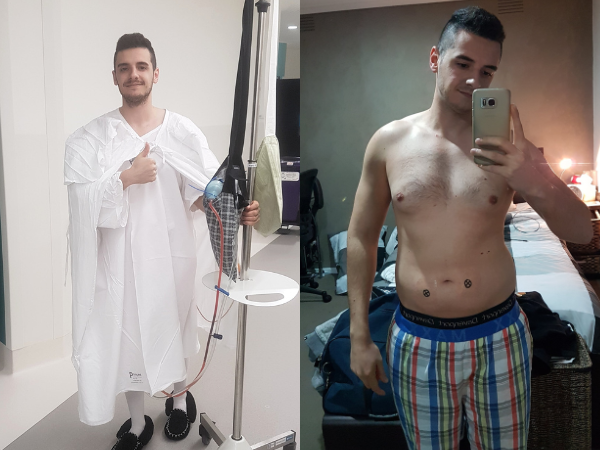 Michael before and after his 12-hour surgery
Michael before and after his 12-hour surgery
The continuing need for kinder treatments
Michael has other lasting impacts from his cancer.
“I’ve lost a lot of feeling. I’ve got numb fingers and feet from chemotherapy. Because my prostate was removed, I can’t have kids naturally. I still get a lot of pain in certain areas of my rear where they operated, and the chemotherapy will have long-term effects.
“But it’s all something I accept so I can still be here today.”
But what if things could be better for patients like Michael? What if there were kinder, more personalised treatments and life-saving cures? What if cancer didn’t have such a devastating and lasting impact?
It’s what Peter Mac researchers like Professor Jayesh Desai, Dr Stephen Luen, and Professor Parker are working to make possible, with your help.
Your donation to Peter Mac today can help accelerate urgently needed cancer research into individualised treatments, providing life-saving and life-changing cures for people like Michael.
Donate today to accelerate life-saving cancer research
The power and promise of breakthrough research
Dr Kasmira Wilson is just one Peter Mac researcher who has been working on ground-breaking new projects. Her research focuses on testing to discover individualised treatments, and life-saving cures.
All to help people like Michael survive and live with fewer side effects.
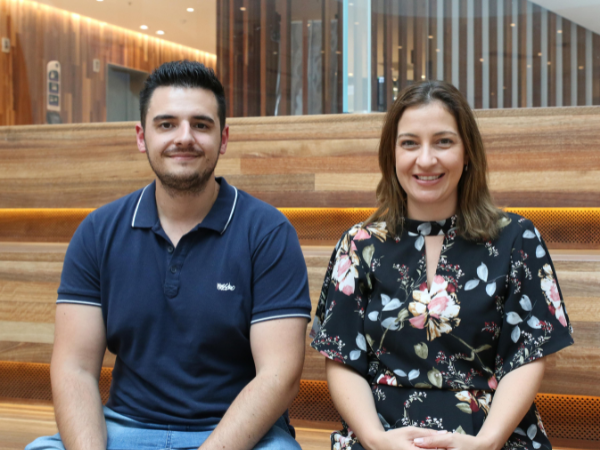 Michael with Dr Kasmira Wilson
Michael with Dr Kasmira Wilson
Dr Wilson says this new test has shown incredible promise, offering an exciting alternative to other, less personalised, approaches.
“A proportion of patients that have bowel cancer will undergo chemotherapy and radiation therapy before they have surgery. But what we don't know is how each patient’s cancer will respond to this treatment.
“My research focuses on trying to work out how a patient’s tumour will respond to these therapies before they go through them, to try and get the best treatment possible for each patient in an individualised setting.
“And, by avoiding patient exposure to treatments that won’t work and finding these more personalised strategies, we can improve responses and survival."
Donate to find new treatments and cancer cures
Keeping the momentum going
Thanks to the advancements made in cancer research and access to cutting-edge technology like the robotic surgical technology, Michael's surgery and treatment were less invasive than it might have been.
But it was still extensive, and it devastated his body. Leaving him with lifelong side effects.
This is why more research is needed, so that the recovery process isn't so painful. And people like Michael have kinder treatments, better outcomes and a better quality of life.
More funding is urgently needed to accelerate discoveries like this research. Research that could give people like Michael individualised treatments, and life-saving cures.
And that is the greatest gift of all.
Donate today to fund ground-breaking research at Peter Mac. You’ll help save and change the lives of people like Michael.
@Follow us on Instagram (@SupportPeterMac)

